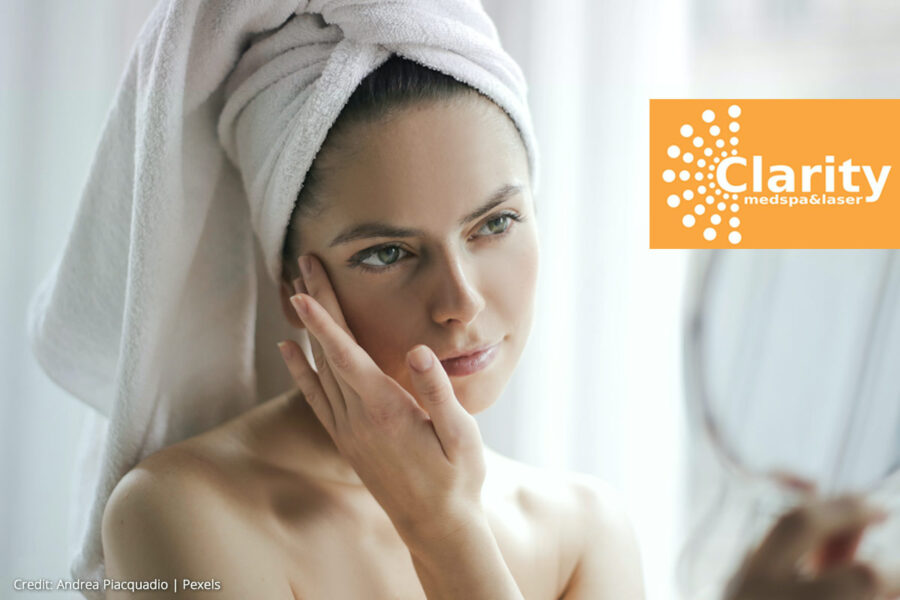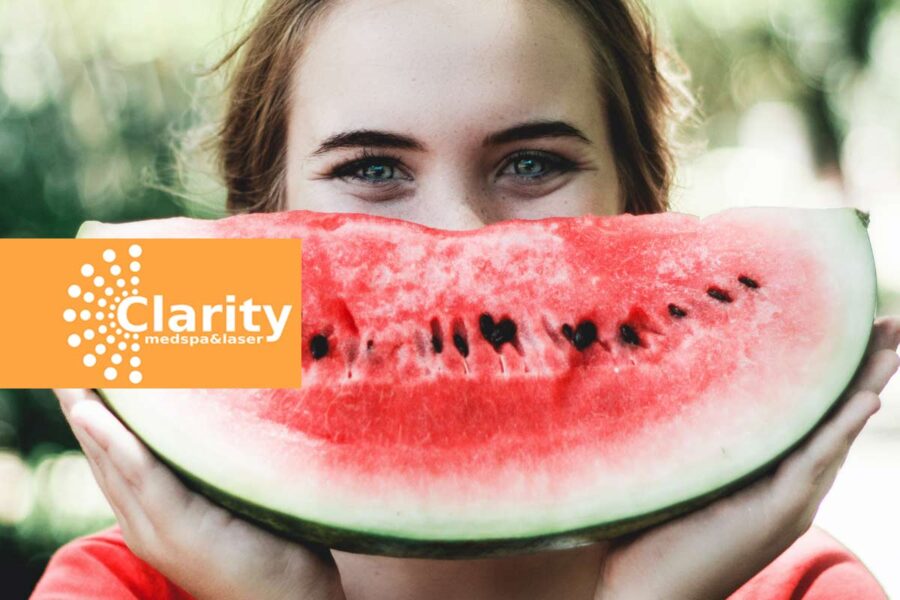Lifestyle Tips to Manage Rosacea
Rosacea is a chronic skin condition that causes inflammation, redness, and the appearance of blood vessels in the central part of the face. The Canadian Dermatology Association states that over 3 million Canadians have rosacea.
It can affect both adult men and women, but statistics show that the skin condition is more common in middle-aged, light-skinned women. Rosacea usually develops between the ages of 30 and 50.
At present, dermatologists claim that rosacea has no cure. However, with lifestyle adjustments and proper skincare, you can deal with rosacea and prevent it from worsening.
Read on to learn more about rosacea and how to deal with it.
What Are the Symptoms of Rosacea?
Rosacea has the following signs and symptoms:
- Red, swollen bumps
- Persistent redness or flushing in affected areas
- Enlarged nose
- acne pustules
- Eye issues
- Skin dryness
- Itching or burning sensation
These signs and symptoms may flare up for weeks or months, then disappear for a while only to resurface. Rosacea can often be mistaken as acne or eczema because of the pustules it can cause.
What Are the Causes of Rosacea?
Skin experts are not certain yet about the exact causes of rosacea, but the following factors can contribute to the development of the skin condition:
- Facial blood vessel abnormalities – Dermatologists believe that irregularities in capillaries can cause persistent flushing and redness. However, the cause behind the inflammation of the blood vessels is still unknown.
- Light skin colour – Rosacea can develop in anyone regardless of age and race. However, statistics show that it is most common in individuals with fair skin, blond hair, and blue eyes.
- H. pylori bacteria – This bacteria is found in the gut and it encourages the production of bradykinin, a polypeptide believed to cause the dilation of blood vessels. Due to this effect, experts suggest that H. pylori may be a contributing factor for rosacea.
- Genes – People who have a close relative with rosacea are likely to develop the skin condition.
What Triggers Rosacea Flare-Ups?
Certain external factors (and even food and drinks we consume daily) can exacerbate rosacea or trigger a flare-up by increasing the flow of blood to the skin. These factors are:
- Sweltering and frigid temperatures
- Sunlight and humidity
- Stress and strong emotions (e.g. anger, anxiety, and embarrassment)
- Hot baths or sauna
- Corticosteroids and high blood pressure medications
- Hot foods and beverages
- Dairy products
- Spices and hot seasonings (e.g. hot sauce, red pepper, and cayenne pepper)
- Wines, liquors, and other alcoholic beverages
- Foods that contain cinnamaldehyde (a substance believed to cause skin irritation) like
- cinnamon, chocolate, tomatoes, and citrus fruits
Skin Problems Reveal a Deeper Problem

Studies suggest that skin problems including acne, rosacea, psoriasis, and dermatitis have a direct connection to an overactive immune system and inflammatory bowel disorder. People who experience these skin issues likely have high levels of immunoreactive neurons in their blood vessels and tissues. This can result in severe inflammation.
Inflammation is a normal defense mechanism that the body activates to fight off infections. However, an abnormal inflammatory response keeps the body in a constant alert mode. This can have a negative effect on the tissues and organs.
Overactive inflammation also disturbs the population of microbes in the body which play a vital role in preventing skin damage and diseases.
Lifestyle Changes to Control Rosacea & Redness

Because skin inflammation hints at a possible gut inflammation, it’s important to identify the foods that trigger rosacea. This is why the best treatment for rosacea is being more mindful of what you feed your body. Taking a new dietary approach or working with a Nutritionist for natural remedies for rosacea is a significant step to stave off skin problems, since what you eat impacts your bowel function.
Additionally, since stress adds fuel to the fire, exploring ways to manage it can make a significant difference.
Diet Tips for Rosacea

Start by addressing your digestive health and mental health. Below are specific lifestyle tips to minimize inflammation and deal with rosacea flare-ups:
-
- Eat anti-inflammatory foodsEat foods that contain anti-inflammatory nutrients and ingredients that counter allergic reactions and neutralize bacteria. Most foods that help tame inflammation are natural. These foods, particularly fruits and leafy vegetables, contain chlorophyll which is proven to reduce inflammation and rosacea symptoms.
Foods that contain high levels of antioxidants are:
-
- Ginger
- Beetroot
- Pineapple
- Pomegranate
- Berries
- Celery
- Sauerkraut
- Broccoli
- Green tea
- Barley sprouts
- Wheatgrass
- Apple cider vinegar
- Healthy fats like coconut oil, olive oil, avocado, nuts, and seeds
- Supplements for Rosacea – probiotics and prebioticsProbiotics are beneficial bacteria, while prebiotics is a type of fibre that feed the probiotics. Together, they work hard to make your gut healthy. They also prevent digestive problems like diarrhea, constipation, heartburn, and reflux.
- Skip foods that trigger rosacea and inflammationSugar-rich and processed foods, alcohol, and caffeine can cause the immune system to be hypersensitive, resulting in increased rosacea redness.If you can’t determine which foods heighten your sensitivity, consider eliminating these known causes of rosacea flare-ups. Below are other foods that trigger such reaction:
- Dairy products (e.g. milk, cheese, ice cream, and yogurt)
- Pre-packaged foods
- Artificial sweeteners
- Fried foods
- Reduce stressStress and anxiety can aggravate inflammation and autoimmune reactions. Constant exposure to stressful situations increases cortisol levels which can be harmful to the body.People with rosacea are prone to stressing about their condition. This is normal. However, it’s important to try to think more positively to prevent your symptoms from worsening.
Remember, rosacea is not caused by poor hygiene, but an internal issue. Consider stress reduction techniques like yoga, prayer, meditation, and exercise.
Skin care for Rosacea

Laser Treatments for Rosacea
A long time favourite laser treatment for rosacea is IPL which is an intense pulsed laser that collapses blood vessels and reduces the overall redness and broken capillaries. Depending on the severity of the rosacea, the patient may need more than one treatment. These treatments are quick with virtually no downtime.
If you are struggling with rosacea, we want to help you. Include us in your skincare team and we’ll do our best to help you manage your rosacea symptoms. Clarity MedSpa carries multiple products and skin care items that can help improve your skin texture and complexion. Book a FREE consultation with our skin experts today. Call us today at (416) 960-2222 for orders.


 Linkedin
Linkedin Facebook
Facebook  Instagram
Instagram  Twitter
Twitter  Youtube
Youtube